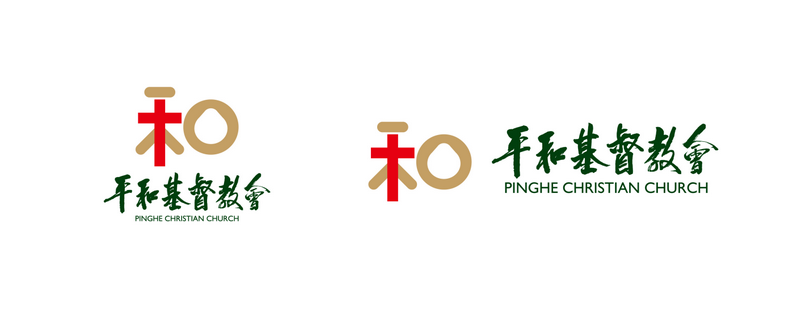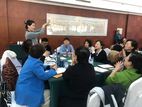The above photo is the logo of Pinghe Christian Church, made up of various elements, including the Chinese character "He,” which means harmony, "cross," and "grapefruit,” a local specialty of Pinghe.
Designed by Mr. Kuncheng Cai from YouDaoCai Brand Design Company, the logo contains the inscription by President Lifu Chen of the Fujian CC.
Pinghe County, located in Yangzhou, has a history of 502 years. Christianity came to Pinghe in 1868, and the church has "run schools and taught" to widely spread the Gospel for 152 years.
Hanzhang Ye, the first pastor ordained by the Chinese Church and Yutang Lin, a great master of Chinese and Western culture in world literature, are the fruits of the Pinghe people in the spread of Christianity and the development of culture and art.
Ye, precocious from childhood, diligent, honest and virtuous, always listened to the preaching at the foot of the bamboo tree in Xiamen. At the age of 28, unfortunately, he became seriously ill and needed to survive many hardships. Moved by the Holy Spirit, he resolved to serve the Lord for the rest of his life. After graduating from the seminary, he often went to serve and preach in the Zhushu Church, where he was highly praised by the congregation. On March 29, 1863, Elder Ye, 31, was ordained as the pastor of Zhushu Church, becoming the first pastor ordained by the Chinese Church. In 1872, at the invitation of the Taiwan Church, he went on a mission tour in Taiwan. In 1883, Ye left the Zhushu Church and returned to Pinghe to form a new church. He not only shepherded the church but also actively engaged in social welfare in the community. In 1895, Ye participated in the initiation of the “Ban Foot-Binding Association” in Xiamen, aiming at changing some customs and abolishing the evil practice of foot-binding. He also wrote the Theory of Banning Foot-Binding, a book about the harm done by foot-binding.
Born in Pinghe, Yutang Lin, the son of a pastor at Banzi Chapel, studied in Mingxin Primary School, which was run by the church in Banzi, and then finished his secondary school in Xiamen. In 1912, he was admitted to St. John's University in Shanghai. After graduation, he taught in Tsinghua University. In the fall of 1919, he went to the Department of Literature of Harvard University in the United States. He returned to China in 1923 after studying at Jena University in Germany and became a professor at Peking University, the dean of Beijing Women's Normal University, and head of its English Department. His works include Moment in Peking and My Country and My People. Moment in Peking was nominated for the Nobel Prize in Literature. Yutang Lin was learned and achieved much in literature, history, linguistics, foreign cultural exchanges, and other fields.
(The original article is published by Gospel Times.)
- Translated by Sophia Chen












